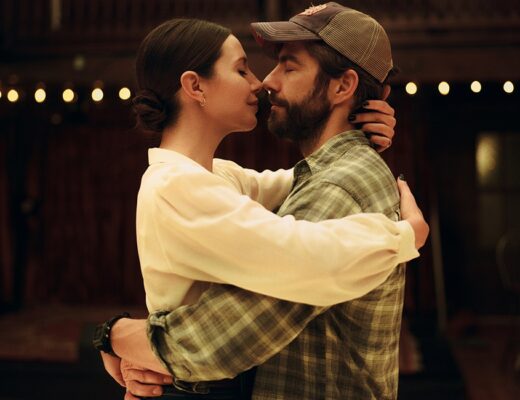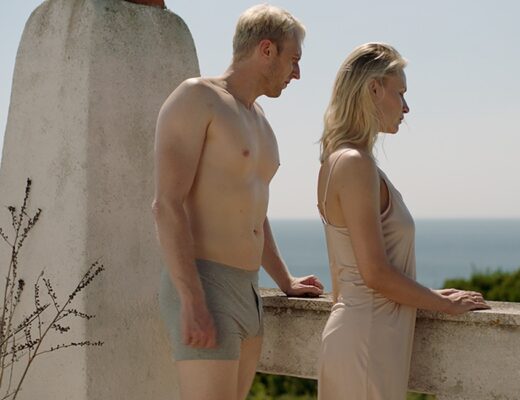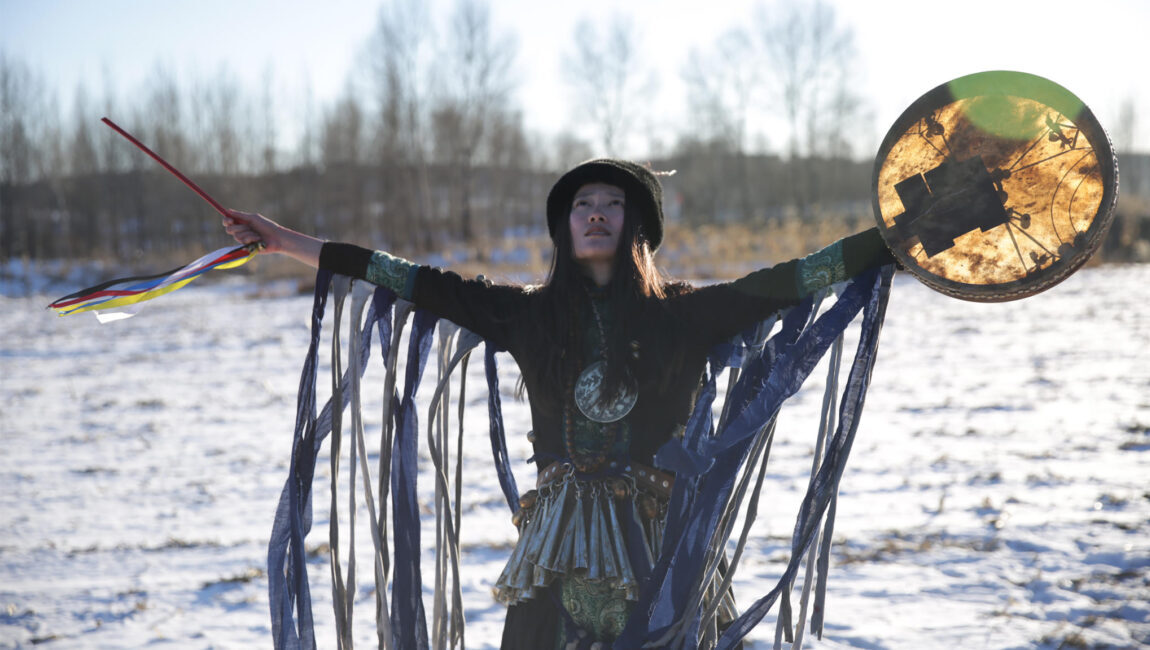#20. Right after a brief voiceover intro that immediately breaks the fourth wall, Leos Carax’s Annette cuts into the opening — or more appropriately, the overture — where we see the French director himself (alongside his real daughter, Nastya) in the control booth of a recording studio while Ron & Russell Mael (famously known as the duo, Sparks) prepare to begin playing a song. As this overture grows into the ebullience of “So May We Start”, the recording crew jaunts outside the studio into streets of a neo-noirish L.A. (depicted both tangibly and abstractly, beautifully dreamy and nightmarishly dark) where they’re quickly joined by the film’s main troupe of actors. It’s here made clear that the film to follow will not only be an ecstatically bizarre one, but a deconstructive one, and so, from this very beginning, Annette shapes itself as a peculiar meta- or even counter-musical which can be regarded as personal and auto-reflective for both Carax and the Maels: for the French maverick cineaste, who also lost his actress partner Yekaterina Golubeva a decade back, it’s something of a long-held dream project that he desired to make in the U.S., while for the influential cult pop/rock group, it represents the duo’s opportunity to at last compose a soundtrack for a movie, their Jacques Tati collaboration left forever undone.
Indeed, establishing genuine originality in this team-up is fundamentally essential, as Annette is a pop-rock opera that also deals with the primordial ideas of artistic creativity, grand questions of creation, and later — as the plot revolving around the cursed relationship of Adam Driver’s Henry McHenry (a misanthropic standup comedian) and Marion Cotillard’s Ann Defrasnoux (an introverted, self-denying opera soprano who dies for her audiences) unfolds — (self-)destruction. The improbable relationship of Henry and Ann gives birth to a strangely miraculous marionette-like child (who gives the film its title). And indeed, it’s not hard to see how Annette (the film) is born from the marriage of kitschy pop and prestigious high art, from the copulation of comedy and tragedy, emerging from classic and new(er) filmic origins: Annette, whether through explicit reference or a series of implicit tributes, lands somewhere within a lineage of Hollywood’s Golden Age of musicals (i.e., Vincente Minnelli’s The Band Wagon) melded with the likes of Jean Vigo’s L’Atalante, Japanese ghost folklore like Kenji Mizoguchi’s Ugetsu, and even Jacques Deray’s La Piscine, Ken Russell’s Tommy, and Brian De Palma’s Phantom of the Paradise (not to mention the conceptual inspiration shared with the works of the Italian futurist director Marco Ferreri).
But the imaginative powers of Annette indeed lie beyond these mere nods or symbolic allusions — merging notions of Darwinism (Henry is dubbed the “Ape of God” and is often chewing bananas) and evangelism (Ann, an Eve-like figure, biting apples) bestow the film a puckish quality. In fact, the absence of a taut narrative affords Carax enormous cinematic liberation, and with the help of Sparks’ compositions, the director leverages this freedom to depict outbursts of energy, magic, and mystery. It can be understood that Carax does not care much about the concrete interiority of his characters here, but he does something even more challenging in delineating both their physicality and abstract emotionality, most clearly achieved through the creation of spaces and even mise-en-scene that play with notions of objectivity and subjectivity, as if each scene were played out on an autonomous stage (an extension of what’s visually and lyrically established in “So May We Start”).
Highly dynamic and continuously mutating, Annette is a madcap, shapeshifting experience wherein the caressing hands of Henry in “We Love Each Other So Much” can soon turn into threatening, jealous weapons during the film’s boat scene, or near the end, a stadium sequence somewhat mirroring the initial studio-set opening, with Driver looking ever more like Carax. But for how assertive and assured Carax’s previous films have been, Annette still surprises as a statement on the need for innocence and authenticity in art, without ever trading in mere shock or intellectual perplexation. Carax seems to argue that, as is best for the strange child born in Annette — and despite the obvious vein of influence that feeds his latest film — art too needs space to express and evolve outside the suffocating effect of “legacy.” In this sense, Annette is a film with a child’s curiosity in its eyes, defiantly looking toward the future.







